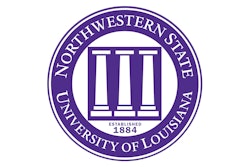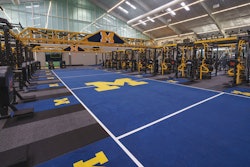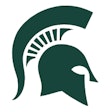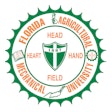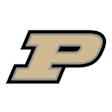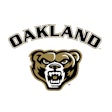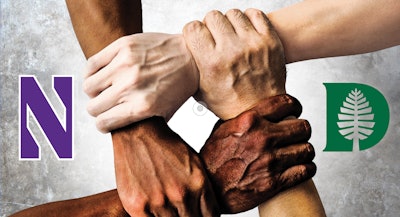
In February, the regional director for the National Labor Relations Board in Boston held that Dartmouth College’s basketball players were “employees” within the meaning of Section 2(3) of the National Labor Relations Act. As a result, the NLRB held that the 15 members of the men’s basketball team could hold a secret ballot to determine whether they wish to be represented for purposes of collective bargaining.
On March 5, the players voted 13-2 to join the Service Employees International Union Local 560, the first-ever labor union for college athletes.
While the Trustees of Dartmouth College have appealed the finding to the full NLRB in Washington, D.C., the purpose of this month’s Legal Action column is to examine the potential impact of the decision in Dartmouth College v. Service Employees International Union, Local 560, Case 01-RC-325633 (Feb. 5, 2024) and illustrate why this case is different from Northwestern University athletes’ attempt to unionize in 2015, when the full NLRB held that “even if the scholarship players were statutory employees, it would not effectuate the policies of the Act to assert jurisdiction” over them. In other words, the NLRB refused to decide the case because it believed that it was an issue better left to Congress, the courts and the NCAA.
Dartmouth College in control
While acknowledging that they do not receive a weekly paycheck or an athletic scholarship to play basketball at Dartmouth, the men’s basketball players nonetheless argued that they met the common law test for employment under Section 2(3) because they receive compensation in return for playing basketball and are subject to Dartmouth’s control.
In particular, the players pointed out that they receive room and board for part of the year, equipment, apparel, tickets to approximately 30 games per season (four tickets for home games and two tickets for away games), footwear, access to nutrition and medical professionals, exclusive use of certain facilities, and academic support. The players also emphasized that Dartmouth exercised significant control over them by designing and monitoring their summer workouts, requiring them to sign the Student-Athlete Handbook, a summary of NCAA regulations, an NIL waiver allowing Dartmouth and the Ivy League to use a player’s image for purposes of promotion, a certification of eligibility, and documents related to sports wagering, amateurism and drug use. Finally, the players argued that during the season, they were required to generally practice for two hours per day and spend another hour lifting weights, with one day off per week. Players also take part in captains’ practices and conditioning practices.
When players travel to away games, the coaching staff requires players to travel, eat and sleep as a group. The players need to wear specific Dartmouth-branded apparel (which was provided to the players), attend meetings, review film, interact with alumni, conduct media interviews and sign autographs as directed. The coaching staff shapes the itinerary for departure time, travel time, hotel check-in, meals and lights-out. Players cannot deviate from this schedule — even if they wish to eat at a different time, stay at a different hotel, or take an unscheduled side trip.
Dartmouth College, however, argued that the players on the men’s basketball team are not employees under Section 2(3), because the players do not perform work in exchange for compensation. Dartmouth emphasized that none of the players receives an athletic scholarship, same as every other Ivy League athlete. Rather, the school points out that the players receive financial aid based on their family’s financial need and are admitted based on the players’ academic grades and scores. A player who receives need-based financial aid will not lose that financial aid if he decides to quit the basketball team.
In addition, Dartmouth argued that the players do not receive W-2 forms related to their participation in the basketball program, nor do they complete I-9 forms related to their participation in the basketball program. Therefore, the college contended that the union cannot represent the players, because Section 2(5) defines a labor organization as one in which employees participate.
Finally, Dartmouth argued that the basketball players do not meet the common law test for employment because Dartmouth does not exercise sufficient control over them. In support of this argument, Dartmouth pointed to the fact that Dartmouth’s Student-Athlete Handbook explicitly states that academics are prioritized over athletics, and Ivy League and NCAA regulations also dictate many of the coaching staff’s actions. Therefore, Dartmouth claimed the NLRB should decline to assert jurisdiction over the basketball players so as not to create instability in labor relations.
Players as employees
Because Dartmouth has the right to control the work performed by the players on the men’s basketball team, and the players perform that work in exchange for compensation, the NLRB found that the players are employees within the meaning of the Act. Section 2(3) of the Act defines “employee” broadly to include “any employee” subject to only a few enumerated exceptions that do not include players at academic institutions. Therefore, if an individual meets the broad Section 2(3) definition of “employee,” they are a statutory employee, regardless of whether their employer is an educational institution, or they are also students while employed.
The NLRB found that the basketball players perform work that benefits Dartmouth. While there is some factual dispute as to how much revenue is generated by the men’s basketball program, and whether that program is profitable, the profitability of any given business does not affect the employee status of the individuals who perform work for that business. The basketball program clearly generates alumni engagement — and financial donations — as well as publicity, which leads to student interest and applications to attend Dartmouth.
In addition, the NLRB found that Dartmouth exercises significant control over the basketball players’ work. As previously noted, the players are required to provide their basketball services to Dartmouth only. Dartmouth determines when the players will practice and play, as well as when they will review film, engage with alumni, or take part in other team-related activities. When the basketball team participates in away games, Dartmouth determines when and where the players will travel, eat and sleep. No other members of the student body are so strictly supervised when they leave the confines of Dartmouth’s campus in Hanover, N.H.
Finally, the NLRB found that the Dartmouth men’s basketball team performs work in exchange for compensation. While true that they do not receive athletic scholarships, as dictated by the Ivy League, they do receive the benefits of “early read” for admission prior to graduating high school and other benefits, such as equipment and apparel, valued in excess of $1,000 per player per year, as well as tickets to games, lodging and meals.
Also, the NLRB held that it could find no cases in which an employee status is tied to the size of one individual’s salary in relation to that of his colleagues. The players’ compensation is of a non-traditional form because NCAA regulations have historically prohibited a traditional form of compensation. Nonetheless, the NLRB held, the players are compensated in exchange for performing specific tasks, including practicing and attending games.
In the wake of Northwestern
What, then, is the impact of the NLRB’s decision in Dartmouth College v. Service Employees International Union, Local 560? While the NLRB found that Dartmouth’s basketball players were employees within the meaning of the Act, the NLRB Regional Office in Chicago had also found that Northwestern football players were employees in 2014. However, in the Northwestern case, the full board on appeal in Washington the following year refused jurisdiction to decide the issue, because it believed that asserting jurisdiction would create instability in labor relations.
So, has anything changed?
When the board declined to assert jurisdiction in the Northwestern case, one of the reasons it gave was because Northwestern was the only private school that competes in the Big Ten Conference, and a variety of state labor laws would apply to football teams at state-run institutions. In the Dartmouth case, things are different. The Ivy League, unlike the Big Ten Conference, consists only of private universities. Accordingly, the board’s concern about potentially conflicting state labor laws does not apply.
Second, in the nine years since the Northwestern ruling, there have been several developments in college sports. First, the NLRB General Council has published two opinion letters finding that athletes who receive grant-in-aid scholarships were “employees” within the meaning of Section 2(3) of the Act. In support of this conclusion, the council noted that because these players at academic institutions perform a service for which they are compensated and are subject to the control of their institution and the NCAA, they clearly satisfy common-law and Section 2(3) definitions of an employee.
Third, the legal landscape involving NCAA regulations has changed in the time since the Northwestern case. The Supreme Court’s decision in NCAA v. Alston, which recognized that college sport is a profit-making enterprise, signaled that the concept of amateurism in the NCAA is changing. Athletes can now profit off their name, image and likeness, and they can transfer from school to school immediately in search of their best deal.
Fourth, beyond the courts, the public’s perception surrounding the NCAA’s amateurism model has also changed. Today, more college sports fans believe that the players should be employees of their schools and share in the billions of dollars schools are earning from the athletic events in which those players participate. As Justice Brett Kavanaugh said in his concurrence in NCAA v. Alston, the only ones not making any money in college sports are the athletes playing the games. Whether for better or worse, the Dartmouth case looks like one of the final steps in the direction of formally recognizing college athletes as employees.

















